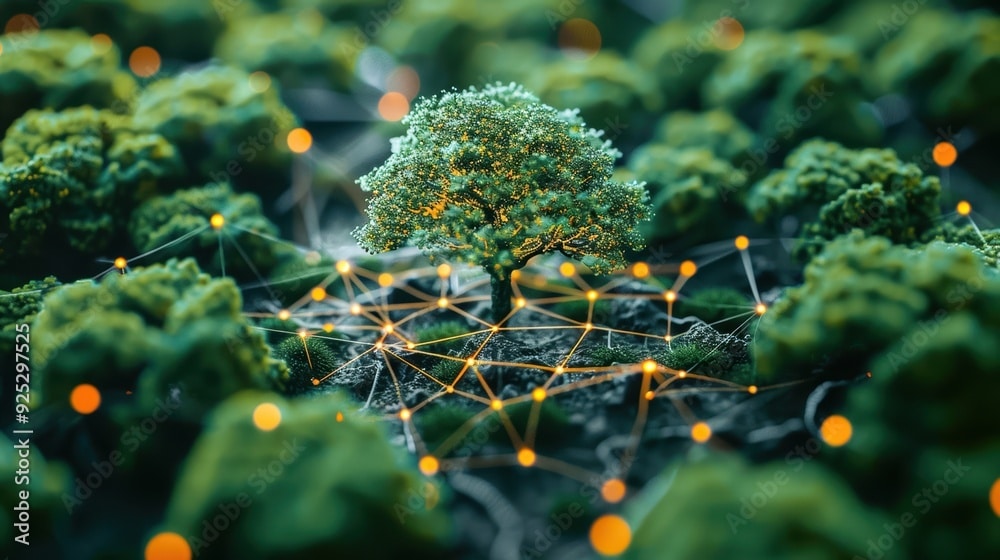Course Overview
TBD
Advanced Data Science Techniques is a continuation of Introduction to Data Science, where we learned the major algorithms for classification, regression, and clustering. In this course, we cover extensively some of the powerful methods widely used in the current industry and research for data analyses using the Google Cloud Platform (GCP).
The course spans over 50 hours of in-person training, spanning three weeks. It comprises in-depth lecture/theory sessions, guided labs for building AI models, quizzes, real-world datasets projects, readings of influential research papers, and discussion groups. The teaching faculty for this course comprises the instructor, a supportive staff of teaching assistants, and a course coordinator. Together they facilitate learning through close guidance and 1-1 sessions when needed.
You can attend the course in person or remotely. State-of-the-art facilities and instructional equipment ensure that the learning experience is invariant of either choice. Of course, you can also mix the two modes: attend the course in person when you can, and attend it remotely when you cannot. All sessions are live-streamed, as well as recorded and available on the student portal.
Learning Outcome
You will gain mastery in advanced data science techniques, including deep learning and unsupervised learning, while developing expertise in leveraging GCP tools like BigQuery and Vertex AI for end-to-end workflows. Additionally, you will build practical experience solving real-world data problems and analyzing influential research papers to bridge theory and application.
Advanced Machine Learning Techniques, Advanced Data Analysis Skills, Real-World Problem Solving with AI.
Schedule
| Start Date | TBD |
|---|---|
| Duration | 3 weeks |
| Session Days | Every Monday, Tuesday, Wednesday, and Thursday |
| Theory Timings | 7 PM – 10 PM PST (Tuesday and Thursday) |
| Lab Session | 7 PM – 10 PM PST (Monday and Wednesday) |
| Quiz Release | Every Thursday morning |
| Quiz Review | Every Sunday at 7.00 PM PST |
| Guided Paper Reading | Every Sunday at noon PST |
Call us at 1.855.LEARN.AI for more information.
Skills You Will Learn
Advanced Machine Learning Techniques, Advanced Data Analysis Skills, Real-World Problem Solving with AI
Prerequisites
Target Audience
Syllabus details

Dive deeper into the world of Data Science with this career-focused workshop designed to enhance your skills through comprehensive training and practical application.
Workshop Highlights
- Comprehensive Training: 50 hours of in-depth sessions over three weeks, combining expert lectures, hands-on labs, and real-world projects.
- Practical Learning: Build AI models, tackle quizzes, and participate in engaging discussions to solidify your understanding.
- Expert Support: Benefit from personalized guidance offered by experienced instructors, teaching assistants, and a dedicated course coordinator.
- Flexible Participation: Attend in person, join remotely, or mix both options. Enjoy live-streamed sessions and access recorded content at your convenience.

The predictive efficacy of the machine-learning algorithms is greatly amplified by feature engineering from the raw input feature-space. A meticulous process of exploratory data analysis (EDA) in search of clues towards meaningful feature extraction often can transform a simple algorithm which was performing very poorly on the original feature-space into an extraordinarily effective one in the new feature space where these extracted features are present.

Approximate & Kernel k-NN is a lazy-learning, non-parametric method that proves remarkably effective in certain situations. We will learn about the interesting notions of distances or similarities that underly the search for nearest neighbors. We will learn about the Curse of Dimensionality, its origin, and the methods to deal with it. We will study how the choice of the “k” provides the bias-variance tradeoffs. Finally, we will learn about a rich collection of distance kernels that mitigate the need for hyperparameter “k” tuning.

Decision Tree provides a versatile means to adapt to non-linearities in the feature space. It is employed for classification as well as regression. The strength of decision trees resides in their very intuitive representation as a tree structure in the way it iteratively partitions the feature space. Thus it is valued for its interpretability, which at the same time being remarkably powerful.

Among the most powerful concepts to have emerged in machine learning is that of ensemble learning. Instead of using only one learner, and making it as powerful as possible so that it comes up with a good hypothesis, the approach here is different. Instead, a crowd of weak learners is taken, each forming its own hypothesis. These hypotheses are methodically synthesized to generate predictions in a manner that there is much greater overall predictive power.

RandomForest is a powerful approach to both classification and regression that employs an ensemble of decision trees and bagging to get a consensus vote or score. Extremely Randomized Trees are a variation of the same approach but exhibit fewer variance errors.

Gradient Boosting is a powerful ensemble method that has proven remarkably effective in recent years. As a result, there is a lot of research and activity in creating continually better performing and more predictive implementations.

Support Vector Machines provide a systematic way to linear the decision boundary by transforming the original feature space into another where the various classes are separated by a linear maximal margin classifier.

The No Free Lunch theorems — despite their frivolous sounding name — are a fundamental guideline that no one algorithm is more “powerful” than any other, on the average. Different algorithms make different underlying assumptions of the ground truth and therefore are well suited to different datasets. On average, they all perform equivalently.
Teaching Faculty

Asif Qamar
Chief Scientist and Educator
Background
Over more than three decades, Asif’s career has spanned two parallel tracks: as a deeply technical architect & vice president and as a passionate educator. While he primarily spends his time technically leading research and development efforts, he finds expression for his love of teaching in the courses he offers. Through this, he aims to mentor and cultivate the next generation of great AI leaders, engineers, data scientists & technical craftsmen.
Educator
He has also been an educator, teaching various subjects in AI/machine learning, computer science, and Physics for the last 32 years. He has taught at the University of California, Berkeley extension, the University of Illinois, Urbana-Champaign (UIUC), and Syracuse University. He has also given a large number of courses, seminars, and talks at technical workplaces. He has been honored with various excellence in teaching awards in universities and technical workplaces.

Chandar Lakshminarayan
Head of AI Engineering
Background
A career spanning 25+ years in fundamental and applied research, application development and maintenance, service delivery management and product development. Passionate about building products that leverage AI/ML. This has been the focus of his work for the last decade. He also has a background in computer vision for industry manufacturing, where he innovated many novel algorithms for high precision measurements of engineering components. Furthermore, he has done innovative algorithmic work in robotics, motion control and CNC.
Educator
He has also been an educator, teaching various subjects in AI/machine learning, computer science, and Physics for the last decade.
Teaching Assistants
Our teaching assistants will guide you through your labs and projects. Whenever you need help or clarification, contact them on the SupportVectors Discord server or set up a Zoom meeting.

Kate Amon
Univ. of California, Berkeley

Shubeeksh K
MS Ramaiah Institute of Technology

Purnendu Prabhat
Kalasalingam Univ.

Harini Datla
Indian Statistical Institute

Kunal Lall
Univ. of Illinois, Chicago
In-Person vs Remote Participation

Plutarch
Education is not the filling of a pail, but the lighting of a fire. “For the mind does not require filling like a bottle, but rather, like wood, it only requires kindling to create in it an impulse to think independently and an ardent desire for the truth.
Our Goal: build the next generation of data scientists and AI engineers
The AI revolution is perhaps the most transformative period in our world. As data science and AI increasingly permeate the fabric of our lives, there arises a need for deeply trained scientists and engineers who can be a part of the revolution.
Over 2250+ AI engineers and data scientists trained
- Instructors with over three decades of teaching excellence and experience at leading universities.
- Deeply technical architects and AI engineers with a track record of excellence.
- More than 30 workshops and courses are offered
- This is a state-of-the-art facility with over a thousand square feet of white-boarding space and over ten student discussion rooms, each equipped with state-of-the-art audio-video.
- 20+ research internships finished.
Where technical excellence meets a passion for teaching
There is no dearth of technical genius in the world; likewise, many are willing and engaged in teaching. However, it is relatively rare to find someone who has years of technical excellence, proven leadership in the field, and who is also a passionate and well-loved teacher.
SupportVectors is a gathering of such technical minds whose courses are a crucible for in-depth technical mastery in this very exciting field of AI and data science.
A personalized learning experience to motivate and inspire you
Our teaching faculty will work closely with you to help you make progress through the courses. Besides the lecture sessions and lab work, we provide unlimited one-on-one sessions to the course participants, community discussion groups, a social learning environment in our state-of-the-art facility, career guidance, interview preparation, and access to our network of SupportVectors alumni.
Join over 2000 professionals who have developed expertise in AI/ML
Become Part of SupportVectors to Inculcate In-depth Technical Abilities and Further Your Career.



